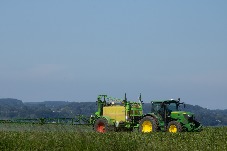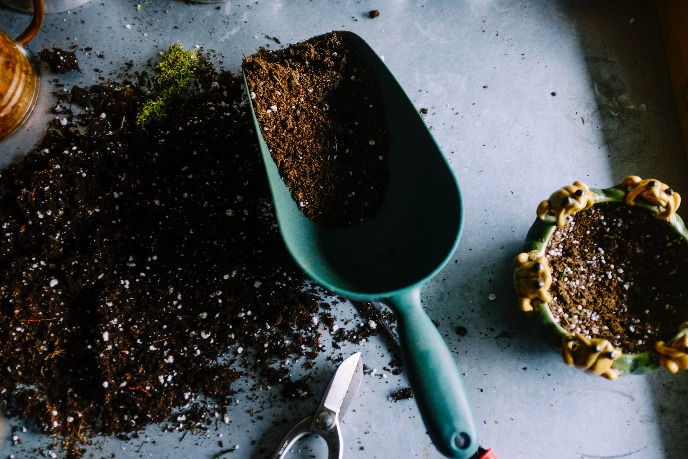A Sustainable cup of Tea & Coffee - challenges & tips

We all love a good cup of coffee or tea, but the industry faces some serious environmental challenges. In this blog, Jylles discusses some of the industry’s underlying sustainability issues. Moreso, he describes how by choosing sustainable brands, reducing our own waste, and supporting local businesses we can help transform the coffee and tea industry.

Tea and coffee are two of the most widely consumed beverages worldwide. Millions of people enjoy them every day and they play an important role in cultures and economies. However, the production and consumption of these beverages comes with several environmental challenges that can’t be ignored. So what are these challenges, and how can we overcome them?
The challenges
Climate dependency
The production of tea and coffee is heavily dependent on the environment and climate. For instance, tea plants require specific climate, soil, and water conditions to thrive, while coffee plants are grown in tropical regions that are susceptible to changes in weather patterns and deforestation. This makes the production of these beverages vulnerable to the impacts of climate change and puts the future of the industry at risk.

Chemicals
Another challenge facing tea and coffee production is the use of pesticides and fertilizers. These chemicals not only harm the environment but also have negative effects on the health of farmers and workers who come into contact with them. In addition, the use of pesticides and fertilizers also contributes to the loss of biodiversity and soil degradation.
Waste
Furthermore, the coffee and tea industry struggles with the issue of waste. The production and consumption of tea and coffee generates a lot of waste, including packaging, tea bags, coffee cups, and other materials. This waste contributes to the growing problem of plastic pollution and takes up valuable space in landfills. To address this issue, many tea and coffee companies have started using biodegradable and compostable packaging, and some have even started recycling programs to reduce their waste footprint.
How to make a difference
So what can we do to overcome these challenges? We can play a crucial role in minimizing the negative effects of coffee and tea on climate change. Here are 5 ways to make a difference:
-
Choose sustainable brands
When purchasing coffee and tea, choose brands that use sustainable and organic farming practices, and that prioritize the health of the environment and their employees. Look for labels such as Fair trade or Rainforest Alliance, for third party confirmation of sustainability claims. By voting with your wallet, you can support the growth of sustainable practices within the industry. -
Use reusable cups and containers
One of the biggest sources of waste from coffee and tea is disposable cups and packaging. We can minimize such waste by using reusable containers and cups when purchasing coffee or tea ‘to go’ or from vending machines. In most University cafeterias, you can even receive a discount for bringing your own cup.
-
Reduce the amount of coffee and tea consumed
Perhaps an unpopular opinion, but we can also reduce the environmental impact of coffee and tea by consuming it in moderation. This not only reduces waste but also helps to conserve the resources used in the production and transportation of these beverages.

-
Compost tea bags
Composting tea bags can help reduce the amount of waste sent to landfills. The organic matter in tea bags can be used as a source of nutrients for plants, which can help reduce the need for chemical fertilizers. Please note: Not all tea bags are compostable, e.g. ones made from nylon. Also, do not compost your biodegradable coffee cups, as these often contain plastics that have microorganisms added to them that break down the plastics over time. It will thus contaminate your compost bin with toxic materials. -
Support local businesses
Buy ‘tea’ from businesses that use native (Dutch) herbs and flowers. Or in other words, opt for local herbal infusions. This helps to restore biodiversity as the herbs provide food for an incredible amount of insects and birds and reduces emissions caused by transportation. With regard to coffee, find local coffee shops and roasters in your area that offer fair trade and sustainably-grown coffee options, to help encourage ethical and sustainable practices in cafes.
With these simple steps, we can have a significant effect on the sustainability of the tea and coffee industry. Choose sustainable products, reduce your waste, support local businesses, and enjoy your beloved beverage that much more!
Hi there! My name is Jylles and I am a Dutch MSc student in ‘International Business & Management’. Within my master’s, I am taking the ‘sustainable society focus’ which allows me to combine my passion for sustainability with my education. In my spare time, I love to learn more about biodiversity by watching a lot of nature documentaries and reading about rewilding projects. Whenever I can, I try to share my knowledge on sustainable topics, creating awareness and behavioral change amongst my friends and family.

